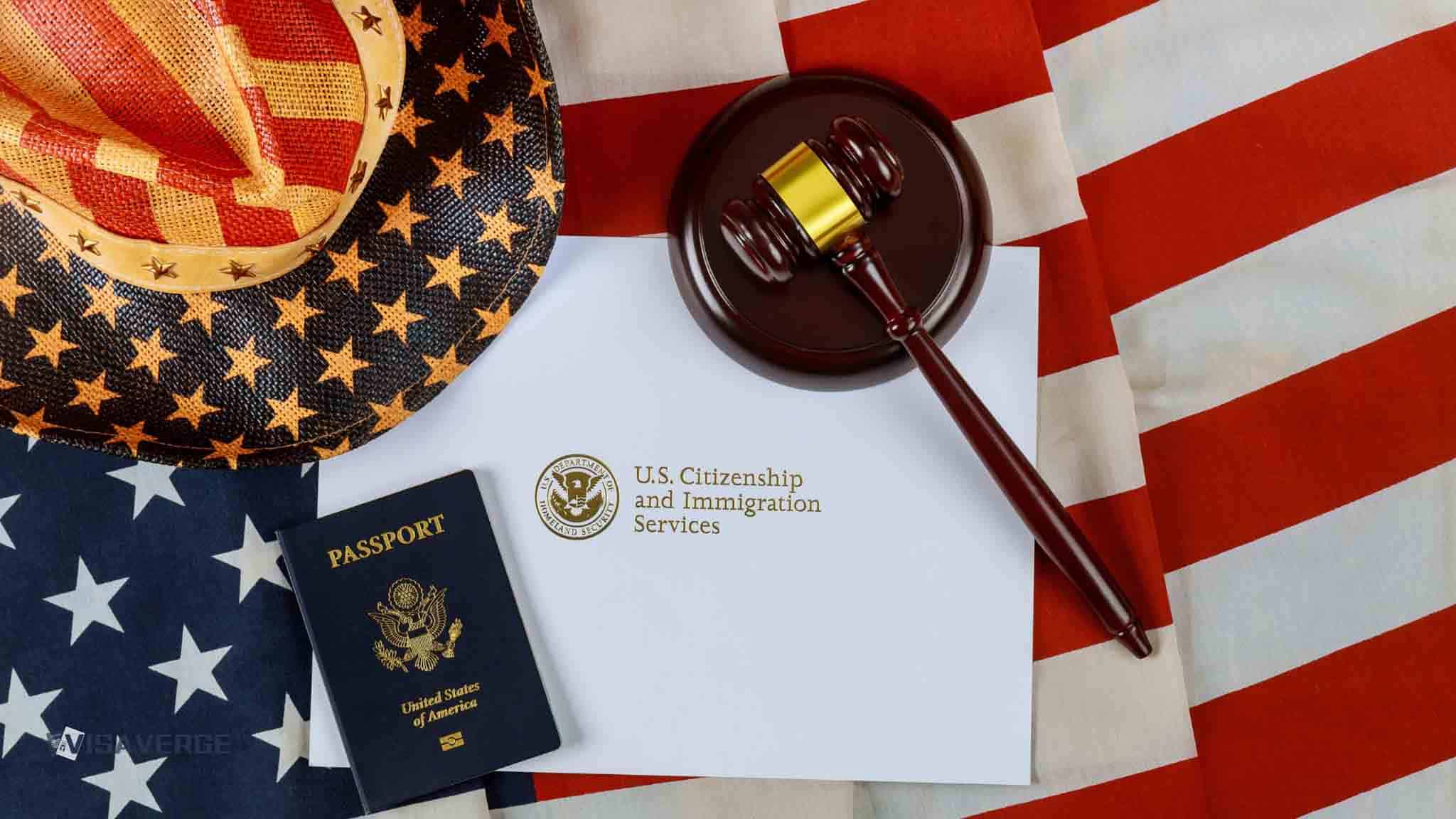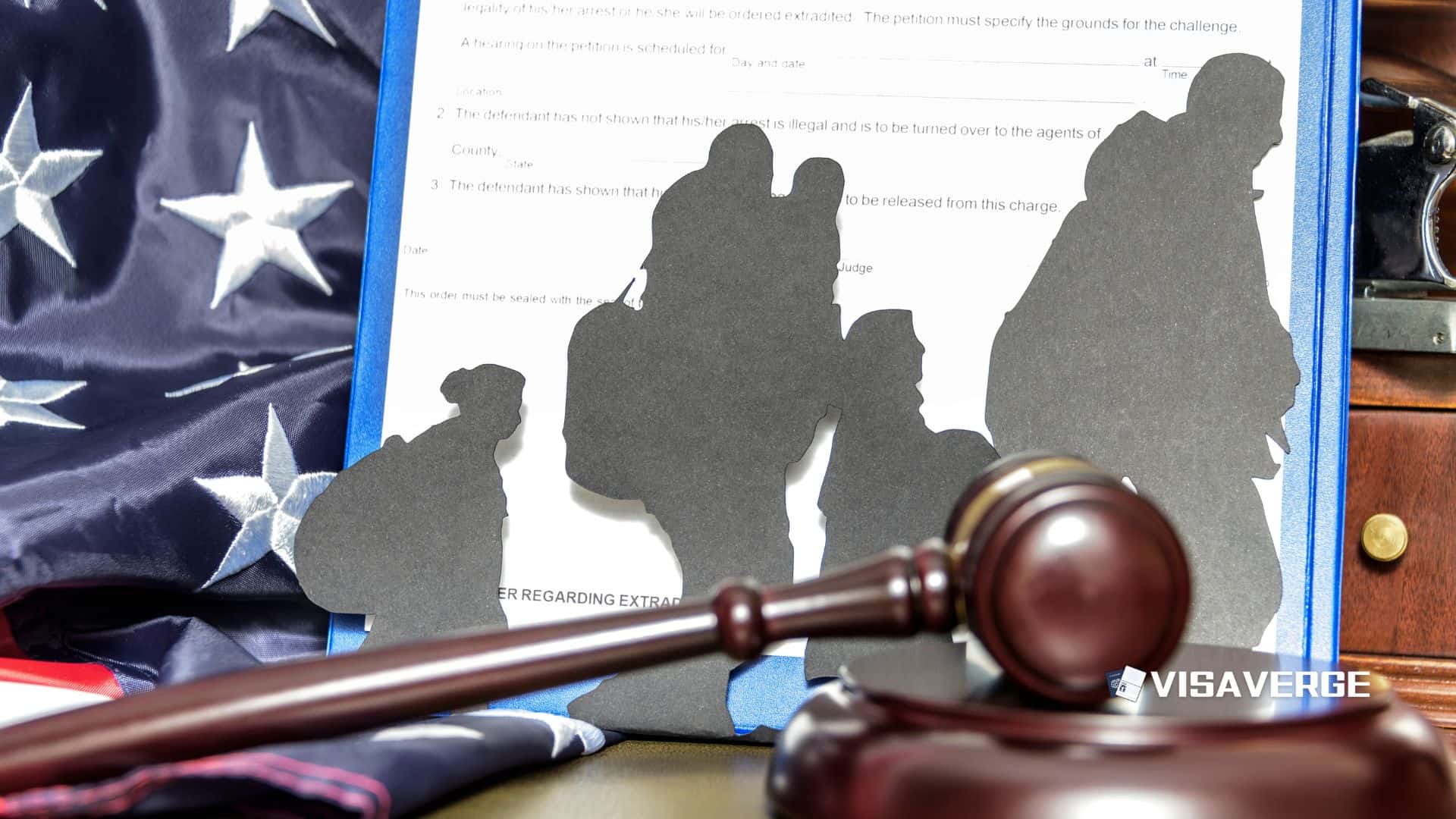Key Takeaways
• Alabama expanded ICE partnerships in 2025, increasing 287(g) local law enforcement participation significantly.
• Secure Communities shares arrested individuals’ fingerprints with DHS, aiding removal of over 72,000 with criminal records.
• New Alabama bills in 2025 impose stricter employer sanctions and require E-Verify to enforce immigration laws.
Local Law Enforcement in Alabama Deepens ICE Partnerships, Sparking Debate Over Immigration Enforcement
Who, What, When, Where, Why, and How

In May 2025, Alabama’s partnership with U.S. Immigration and Customs Enforcement (ICE) has come under renewed scrutiny after a widely shared video showed ICE agents, working with local police, arresting a Hispanic man at a construction site in Foley, Alabama. This incident, which took place between May 22 and May 24, has reignited concerns about the growing role of local law enforcement in federal immigration operations. The state’s increasing participation in the 287(g) program—a federal initiative that allows local police to help enforce immigration laws—has become a flashpoint for debate among lawmakers, immigrant communities, and advocacy groups.
Expanding ICE–Alabama Cooperation: What’s Happening Now
Alabama is one of several states expanding its cooperation with ICE under the 287(g) program. This program gives local law enforcement officers the power to carry out certain federal immigration duties, such as questioning, detaining, and arresting people suspected of being in the United States 🇺🇸 without legal status. As of early 2025, the number of local agencies nationwide participating in 287(g) has more than doubled since President Trump began his second term, with Alabama among the states increasing its involvement.
There are three main ways Alabama agencies work with ICE under 287(g):
- Task Force Model: Local officers can stop, question, and detain people they suspect of civil immigration violations while on patrol.
- Jail Enforcement Model: Officers in jails can interrogate people who have been arrested to determine their immigration status and can issue ICE holds, keeping them in jail for up to 48 hours after their scheduled release so ICE can pick them up.
- Warrant Service Officer Model: Officers serve ICE administrative warrants inside jails but do not question people about their immigration status.
In addition to 287(g), Alabama uses the Secure Communities program, which automatically shares the fingerprints of everyone arrested with the Department of Homeland Security (DHS). This helps ICE identify and remove people with criminal convictions. As of January 2025, Secure Communities is active in 15 Alabama jurisdictions.
Recent Incident in Foley, Alabama
The recent arrest in Foley, captured on video and spread widely on social media, has put a spotlight on these partnerships. The video shows ICE agents, with help from local police, detaining a Hispanic man at a construction site. Community advocates say this is an example of aggressive enforcement tactics that can lead to racial profiling and fear among immigrants, even those without serious criminal records.
New State Legislation: Tougher Rules on Immigration
Alabama lawmakers have introduced several bills in 2025 to increase state-level immigration enforcement. These bills aim to:
- Crack down on labor brokers who recruit and hire immigrant workers.
- Require employers to use E-Verify, a federal system that checks if workers are authorized to work in the United States 🇺🇸.
- Impose stricter penalties, including fines and the loss of business licenses, for employers who do not follow immigration-related employment laws.
Some of the most notable bills include HB 302 (Rep. Ben Robbins), HB 297 (Rep. Jennifer Fidler), HB 298 (Rep. Brock Colvin), HB 3 (Rep. Chip Brown), and HB 304 (Rep. Jamie Kiel). According to Rep. Robbins, these bills are “narrowly focused on protecting Alabama’s workforce and create transparency about who is and isn’t in our state,” and also aim to fight human trafficking and worker exploitation.
How the 287(g) Program Works in Alabama
To understand the impact of these partnerships, it’s important to look at how the 287(g) program operates in practice. Here’s a step-by-step look at the Jail Enforcement Model, which is widely used in Alabama:
- Arrest and Booking: A person is arrested and booked into a local jail.
- Fingerprinting: The person’s fingerprints are taken and sent to both the Department of Justice (DOJ) and DHS databases.
- ICE Notification: If the databases show a match with someone who may be removable, ICE is notified.
- Interrogation: Deputized local officers, trained by ICE, question the person about their immigration status.
- ICE Hold (Detainer): If the person is found to be removable, an ICE hold can be placed, keeping them in jail for up to 48 hours after their scheduled release so ICE can take custody.
The Task Force Model allows officers to question and detain people suspected of immigration violations while on patrol, not just in jails. The Warrant Service Officer Model is more limited, focusing only on serving ICE warrants inside jails.
Secure Communities: Biometric Data Sharing
Alabama also participates in Secure Communities, a program that shares the fingerprints of everyone arrested with DHS. Here’s how it works:
- Fingerprint Submission: Local police send fingerprints to the DOJ.
- Data Sharing: The DOJ shares this data with DHS.
- Status Check: DHS checks if the person is in the country legally.
- ICE Notification: If there’s a match, ICE is notified and may start removal proceedings.
According to ICE, Secure Communities has led to the removal of over 72,000 people with criminal convictions nationwide, including more than 26,000 convicted of serious crimes like murder, rape, and kidnapping.
Supporters’ Perspective: Public Safety and Information Sharing
Supporters of these partnerships, including ICE officials and some Alabama lawmakers, argue that working together helps remove dangerous criminals and makes communities safer. Marc Rapp, Acting Assistant Director for Secure Communities, said the program “enhances public safety by enabling ICE to identify and remove criminal aliens more efficiently and effectively.”
Proponents also say that sharing information between local police and federal immigration authorities helps prevent people with serious criminal records from slipping through the cracks. They believe that the 287(g) program and Secure Communities are important tools for law enforcement.
Critics’ Perspective: Fear, Distrust, and Racial Profiling
On the other hand, many civil rights groups, immigrant advocates, and community members are deeply concerned about these partnerships. They argue that:
- Local police involvement in immigration enforcement leads to racial profiling, especially against Latino and immigrant communities.
- People arrested for minor offenses, or even those not convicted of any crime, can end up facing deportation.
- Fear of deportation makes immigrants less likely to report crimes or cooperate with police, which can actually make communities less safe.
Antonio Chavero, a protester in Birmingham, said, “Illegal immigrants that are not criminals… work hard to come to this country to have a better future for their child.” Many advocates believe that aggressive enforcement tears families apart and punishes people who contribute to their communities.
Implications for Immigrants, Law Enforcement, and Employers
For Immigrants:
The growing cooperation between ICE and Alabama police has created a climate of fear among many immigrants. Even minor encounters with law enforcement—such as traffic stops or arrests for small offenses—can lead to ICE holds and possible deportation. This is true even for people who have lived in the United States 🇺🇸 for many years and have no serious criminal history.
For Law Enforcement:
Local agencies receive training and resources from ICE, but critics say this can take away from community policing and damage trust with immigrant residents. When people are afraid to call the police or report crimes, it can make everyone less safe.
For Employers:
New state laws are putting more pressure on employers to check the immigration status of their workers. Businesses that do not follow these rules could face fines or lose their licenses. Labor brokers—people or companies that recruit workers—are also under more scrutiny.
Background: How Did We Get Here?
The roots of Alabama’s cooperation with ICE go back to 1996, when Congress passed Section 287(g) of the Immigration and Nationality Act. This law allows ICE to give local police the power to enforce immigration laws. The Secure Communities program, which started expanding in 2008, made it easier for ICE to identify people in the country without legal status by sharing fingerprints taken during arrests.
During President Trump’s first term (2017–2021), the federal government pushed for more 287(g) agreements and tougher interior enforcement. In 2025, under President Trump’s second term, Alabama has increased its participation in these programs, and lawmakers have introduced new bills to further strengthen state-level immigration enforcement.
Quantitative Data: The Numbers Behind the Policies
- ICE Removals: Over 72,000 people with criminal convictions have been removed nationwide through Secure Communities, including more than 26,000 convicted of felonies.
- Jurisdictions: ICE’s biometric information-sharing is active in 1,253 jurisdictions across 42 states, including 15 in Alabama.
- 287(g) Expansion: The number of local agencies in the 287(g) program more than doubled nationwide in early 2025.
Academic and DOJ Analysis: What Makes These Partnerships Work?
Experts say that for federal-local partnerships like 287(g) to be effective, there must be:
- Clear legal authority and formal agreements.
- Joint leadership and accountability.
- Enough resources and training for local officers.
However, if roles are unclear or resources are stretched thin, these partnerships can lose focus and damage trust with the community.
Community Response: Protests and Calls for Change
The recent arrest in Foley and the expansion of ICE partnerships have sparked protests in Birmingham and other cities. Community groups are calling for more protection for immigrant families and less involvement of local police in federal immigration enforcement. Many say that these policies hurt families and make it harder for immigrants to feel safe in their own neighborhoods.
Pending Legislation and the Road Ahead
Several bills are still being debated in the Alabama legislature that could further increase state-level immigration enforcement and employer accountability. If passed, these laws would give local police and state agencies even more tools to check immigration status and penalize employers who hire unauthorized workers.
At the federal level, ICE is expected to keep expanding 287(g) partnerships and biometric data sharing. The debate over how to balance public safety with civil rights is likely to continue, with strong opinions on both sides.
Practical Guidance for Immigrants and Employers
If you are an immigrant living in Alabama:
- Know Your Rights: You have the right to remain silent and to ask for a lawyer if questioned by police or ICE.
- Be Prepared: Carry important documents and have a plan in case you or a family member is detained.
- Stay Informed: Follow updates from trusted sources and community organizations.
If you are an employer:
- Follow the Law: Use E-Verify to check the work authorization of all employees.
- Register Labor Brokers: Make sure any labor brokers you work with are properly registered under state law.
- Keep Records: Maintain accurate records to show compliance with immigration-related employment laws.
Official Resources and Where to Get Help
For more information about the 287(g) program, including which agencies are participating and how the process works, visit the official ICE 287(g) Program page. This site provides details on current agreements, training, and contact information for reporting crimes or seeking assistance.
To learn more about Secure Communities and how biometric data is shared between local police and DHS, visit the ICE Secure Communities page.
For updates on Alabama state legislation, including bill tracking and contact information for lawmakers, visit the Alabama Legislature official website.
Summary Table: ICE–Alabama Law Enforcement Partnerships
| Aspect | Details |
|---|---|
| Programs | 287(g) (Task Force, Jail Enforcement, Warrant Service), Secure Communities |
| Active Jurisdictions | 15 in Alabama (Secure Communities), multiple agencies in 287(g) |
| Recent Incidents | May 2025: High-profile ICE/local arrest in Foley, AL |
| Pending Legislation | HB 302, HB 297, HB 298, HB 3, HB 304 (2025 session) |
| Key Stakeholders | ICE, Alabama State Legislature, local law enforcement, immigrant advocates |
| Community Response | Protests in Birmingham and elsewhere; calls for protection of immigrant families |
| Official Contacts | ICE: 1-866-DHS-2-ICE; www.ice.gov/287g; Alabama Legislature website |
Looking Forward: What’s Next for Alabama and ICE?
As Alabama continues to expand its cooperation with ICE, the debate over immigration enforcement is likely to intensify. Supporters believe these partnerships make communities safer by removing dangerous criminals and improving information sharing. Critics warn that they lead to racial profiling, family separation, and a breakdown of trust between police and immigrant communities.
Analysis from VisaVerge.com suggests that the future of immigration enforcement in Alabama will depend on the outcome of pending state legislation, ongoing federal policy changes, and the response of local communities. As new laws are debated and more agencies join the 287(g) program, all eyes will be on Alabama as a key battleground in the national conversation about immigration, public safety, and civil rights.
For the most current updates, always refer to ICE’s official 287(g) program page and the Alabama Legislature’s bill tracking system. Staying informed and knowing your rights are the best ways to protect yourself and your community in this changing landscape.
Learn Today
287(g) Program → A federal initiative allowing local law enforcement to perform certain immigration enforcement duties under ICE supervision.
Secure Communities → A program that shares arrested individuals’ fingerprints with DHS to identify and remove unauthorized immigrants.
ICE Hold (Detainer) → An order allowing ICE to keep someone in jail up to 48 hours after release to transfer custody.
E-Verify → An electronic system employers use to verify workers’ legal authorization to be employed in the U.S.
Warrant Service Officer Model → A 287(g) enforcement method where officers serve ICE warrants within jails without interrogating immigration status.
This Article in a Nutshell
Alabama’s growing ICE partnerships through the 287(g) program raise safety and civil rights debates. Recent arrests highlight tensions between enforcement and immigrant community trust, while new laws target employers. The state balances public safety, immigrant fears, and legal responsibilities amid intensifying federal-local immigration cooperation in 2025.
— By VisaVerge.com













